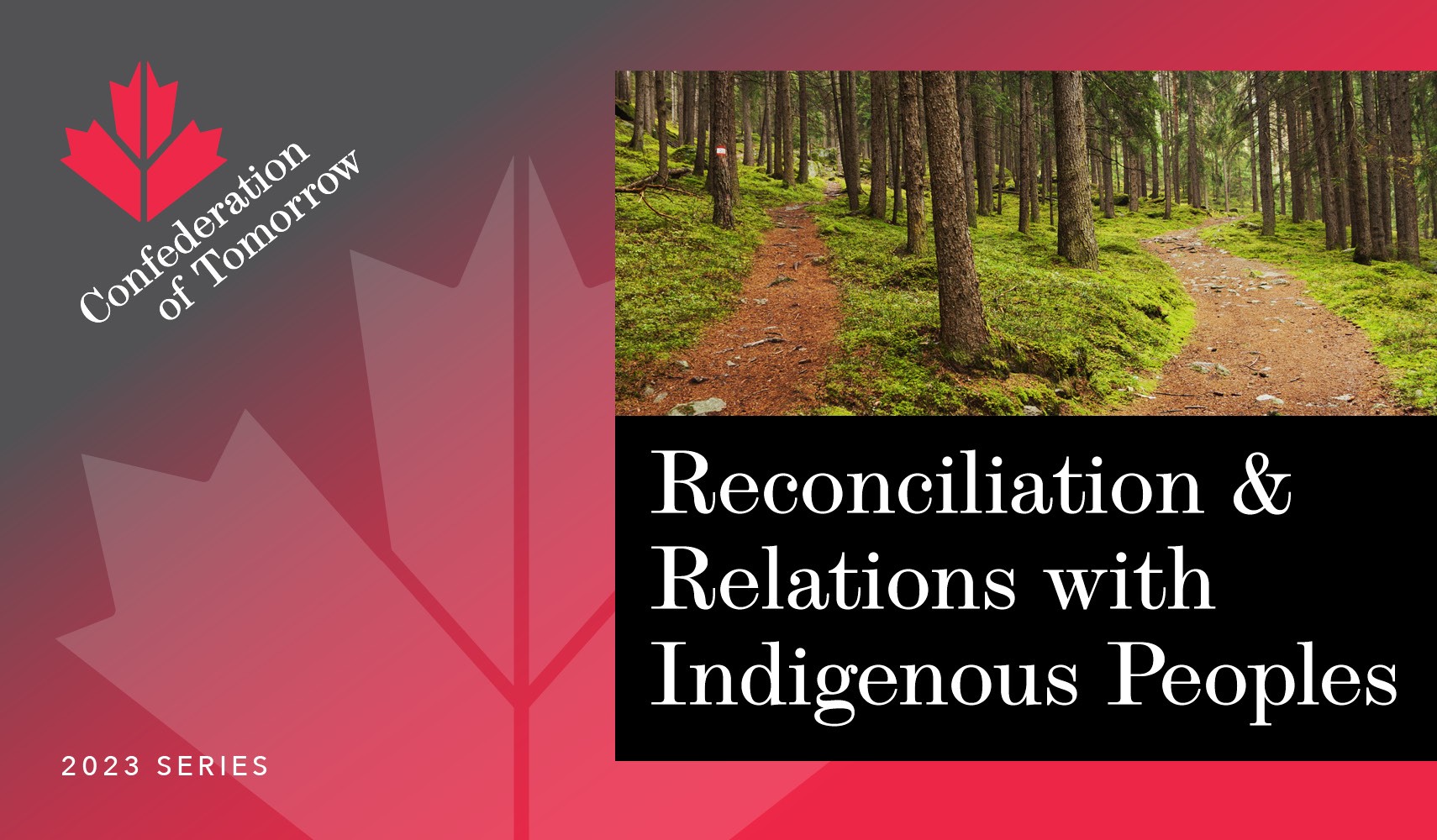June 21, 2023 | Andrew Parkin
Reconciliation and Relations with Indigenous Peoples

Reconciliation and Relations with Indigenous Peoples
A report from the 2023 Confederation of Tomorrow Survey of CanadiansThe Confederation of Tomorrow surveys are annual studies conducted by an association of the country’s leading public policy and socio-economic research organizations: the Environics Institute for Survey Research, the Centre of Excellence on the Canadian Federation, the Canada West Foundation, the Centre D’Analyse Politique – Constitution et Fédéralisme, the Brian Mulroney Institute of Government and the First Nations Financial Management Board. The surveys give voice to Canadians about the major issues shaping the future of the federation and their political communities. The 2023 study consists of a survey of 5,365 adults, conducted online in the provinces between January 26 and February 9; and by telephone in the territories between January 24 and February 26.
The Confederation of Tomorrow surveys have covered relations with Indigenous Peoples from the beginning in 2019, documenting a gradual shift in Canadian public opinion toward greater support for the rights of Indigenous Peoples and the process of reconciliation. The 2023 survey updates this research, highlighting how the perspectives of both Indigenous Peoples and non-Indigenous Canadians continue to evolve.
Two general themes emerge from the findings of the latest Confederation of Tomorrow Survey of Canadians on the subject of reconciliation and relations with Indigenous Peoples.
The first is that there are some encouraging trends. More people are seeing relations between Indigenous Peoples and non-Indigenous people in Canada as positive, and a majority remains optimistic about the prospects for reconciliation, with a growing number of Indigenous Peoples feeling very optimistic. Canadians are almost twice as likely to say that governments have not gone far enough to advance reconciliation than they are to say that they have gone too far. And seven in ten Canadians recognize that they have a role as individuals in advancing reconciliation.
The second theme is the continued need for more dialogue, information and education to bring Indigenous Peoples and non-Indigenous Canadians closer together.
Read the report
For more information contact the Environics Institute or Dr. Keith Neuman.
Survey materials
Report: Reconciliation and Relations with Indigenous Peoples
Detailed survey tables (for questions covered in this report) - full sample
Detailed survey tables (for questions covered in this report) - Indigenous respondents*
Read other reports from this study
* Data presented in the full-sample tables are weighted for several factors, including region (province or territory), gender, age, education, immigration background, and Indigenous identity. In addition, results for Indigenous Peoples when reported separately are weighted by additional factors, including by First Nations, Métis and Inuit identity and residence on- or off-reserve. For this reason, a second set of tables is available for results for Indigenous respondents.
Stay Informed
Like what you're reading? With our bi-monthly e-newsletter, you can receive even more with the latest details on current projects, news, and events at the institute.
Subscribe
Like what you're reading? With our bi-monthly e-newsletter, you can receive even more with the latest details on current projects, news, and events at the institute.
Subscribe